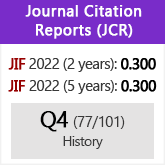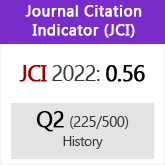Race as a weapon: defending the colonial plantation order in the name of civilization, 1791-1850
DOI:
https://doi.org/10.3989/chdj.2015.012Keywords:
Saint-Domingue, Haiti, Santo Domingo, Cuba, Puerto Rico, Spain, slavery, race, racialism, civilization, barbarity, fear, terror, genocideAbstract
The object of this study is to analyze the use and adaptation of racialist ideology in the Afro-Hispanic Antilles following the start of the Revolution of Saint-Domingue in 1791, as it evolved to justify and reinforce plantation slavery and served to reinstitute and police the color line that was the central ideological premise supporting the economy of exchange and exploitation in the world of Atlantic coloniality. The renewed stigmatization of the racialized types in Creole population aimed to limit the echoes of the revolution against the plantation and it was an attempt to dismiss its political significance as a movement of self-emancipation and decolonization. The fear promoted by the colonial authorities, the planter class and Creole intellectuals, liberal and otherwise, aimed to establish a delicate balance between terror and profits wanting to justify the continuation of plantation slavery through the purposeful resemantization of the ideological tandem civilization/barbarity based on a racialized reading of history that championed European immigration and the systematic reduction of the population of Afro-descendants.
Downloads
References
Anonymmous (1806) Vida de J. J. Dessalines, gefe de los negros de Santo Domingo. Con notas muy circustanciadas sobre el origen, carácter y principales atrocidades de los principales gefes de aquellos rebeldes desde el principio de la insurreccion de 1791, D.M.C.G. (trans.), Juan López Cancelada (ed.). Oficina de Mariano de Zú-iga y Ontiveros, Mexico.
Arango y Parreño, Francisco de (1952) Obras. 2 Ts. Dirección de Cultura, Ministerio de Educación, Havana.
Buscaglia Salgado, José F. (2011) "El Caribe al final de la Era Usoniana: Hacia un nuevo modelo de confederación". Aguaita, 23: 38-58.
Buscaglia Salgado, José F. (2003) Undoing Empire, Race and Nation in the Mulatto Caribbean. University of Minnesota Press, Minneapolis.
Del Monte y Tejada, Antonio (1890) Historia de Santo Domingo. Imprenta de García Hermanos, Santo Domingo.
Dubois, Laurent (2004) Avengers of the New World. The Story of the Haitian Revolution. Harvard University Press, Cambridge.
Dubois, Laurente (2008) "Avenging America. The Politics of Violence in the Haitian Revolution." In The World of the Haitian Revolution, edited by Geggus, David Patrick & Fiering, Norman. Indiana University Press, Bloomington: 111-124. PMid:18260774
Duque de Estrada, Nicolás (2006) Explicación de la doctrina cristiana acomodada a la capacidad de los negros bozales. Biblioteca Nacional José Martí, Havana.
Ferrer, Ada (2004) "Cuba en la sombra de Haití: noticias, sociedad y esclavitud". In El rumor de Haití en Cuba. Temor, raza y rebeldía, 1789-1844, editado por González-Ripoll, Mª Dolores, Consuelo Naranjo Orovio, Ada Ferrer, Gloria García y Josef Opatrn?. CSIC, Madrid: 179-231.
Ferrer, Ada (2015) Freedom’s Mirror. Cuba and Haiti in the Age of Revolution. Cambridge University Press, New York.
García, Gloria (2004) "Vertebrando la resistencia: la lucha de los negros contra el sistema esclavista, 1790-1845". In El rumor de Haití en Cuba. Temor, raza y rebeldía, 1789-1844, editado por González-Ripoll, Mª Dolores, Consuelo Naranjo Orovio, Ada Ferrer, Gloria García y Josef Opatrn?. CSIC, Madrid: 233-320.
Garrigus, John (2006) Before Haiti: Race and Citizenship in French Saint-Domingue. Palgrave Macmillan, New York. http://dx.doi.org/10.1057/9781403984432
Geggus, David, (ed.) (2001) The Impact of the Haitian Revolution in the Atlantic World. University of South Carolina Press, Columbia, S.C. PMid:18630399
Schoelcher, Victor (1889) Vie de Toussaint Louverture. Paul Ollendorf, Paris.
Geggus, David (2002) Haitian Revolutionary Studies. Indiana University Press, Bloomington.
Geggus, David (2010) "The Caribbean in the Age of Revolution." In The Age of Revolutions in Global Context, c. 1760-1840, edited by Armitage, David and Subramanyam, Sanjay. Palgrave Macmillan, New York: 83-100.
Geggus, David Patrick & Fiering, Norman (eds.) (2008) The World of the Haitian Revolution. Indiana University Press, Bloomington.
Genovese, Eugene (1979) From Rebellion to Revolution. Afro-American Slave Revolts and the Making of the Modern World. Louisiana State University Press, Baton Rouge. PMCid:PMC1668679
Gomariz, José (2004) "Francisco de Arango y Parre-o: El discurso esclavista de la ilustración cubana". Cuban Studies, 35: 45-61. http://dx.doi.org/10.1353/cub.2005.0008
González-Ripoll, Mª Dolores (2004) "Desde Cuba, antes y después de Haití: pragmatismo y dilación en el pensamiento de Francisco Arango sobre la esclavitud". In El rumor de Haití en Cuba. Temor, raza y rebeldía, 1789-1844, editado por González-Ripoll, Mª Dolores, Consuelo Naranjo Orovio, Ada Ferrer, Gloria García y Josef Opatrn?. CSIC, Madrid: 9-81.
González-Ripoll, Mª Dolores (2015) "Espejos trucados: la Secret history or the horrors of Santo Domingo (1808), entre la ficción y la historia antillana". Revista de Indias, 263: 93-115. http://dx.doi.org/10.3989/revindias.2015.005
Lacroix, Pamphile de (1995) "Memoires pour servir à l'histoire de la Révolution de Saint-Domingue." In La Révolution de Haïti, Pierre Pluchon. Karthala, Paris. PMid:8570939
Marlés, J. Lacroix de (1845) Histoire descriptive et pittoresque de Saint –Domingue (Haïti). Ad. Mame et Cie., Tours.
Naranjo Orovio, Consuelo (2004) "La amenaza haitiana, un miedo interesado: poder y fomento de la población blanca en Cuba". In El rumor de Haití en Cuba. Temor, raza y rebeldía, 1789-1844, editado por González-Ripoll, Mª Dolores, Consuelo
Naranjo Orovio, Ada Ferrer, Gloria García y Josef Opatrn?. CSIC, Madrid: 83-178.
Naranjo Orovio, Consuelo (2009) "Cara y cruz de una política colonial: azúcar y población en Cuba". In Más allá del azúcar: política, diversificación y prácticas económicas en Cuba, 1878-1930, editado por Santamaría, Antonio y Consuelo Naranjo Orovio. Doce Calles, Aranjuez, Spain: 21-57.
Naranjo Orovio, Consuelo (2013) "La entronización del miedo: iconos del terror y exclusión en el Caribe tras la revolución de Saint-Domingue". In Imaginarios del miedo. Estudios desde la Historia, editado por Ette, Ottmar, Consuelo Naranjo e Ignacio Montero. Edition Tranvia, Berlin: 67-90.
Pérez de la Riva, Juan (2004) La conquista del espacio cubano. Fundación Fernando Ortiz, Havana.
Provine, William B. (1973) "Geneticist and the biology of race crossing." Science, 182: 790-796. http://dx.doi.org/10.1126/science.182.4114.790 PMid:4583525
Reiss, Tom (2012) The Black Count: Glory, Revolution, Betrayal, and the Real Count of Monte Cristo. Crown, New York.
Rodríguez Demorizi, Emilio (1955) La era de Francia en Santo Domingo. Editora del Caribe, Ciudad Trujillo (Santo Domingo). Saco, José Antonio (1962) Colección de Papeles Científicos, Históricos, Políticos y de otros ramos sobre la Isla de Cuba, ya publicados, ya inéditos. 3 tomos. Editora del Consejo Nacional de Cultura, Havana.
Saco, José Antonio (1960) "Examen analítico del informe de la Comisión Especial nombrada por las Cortes sobre la exclusión de los actuales y futuros diputados de Ultramar y sobre la necesidad de regir aquellos países por leyes especiales." In Colección de papeles científicos, históricos, políticos y de otros ramos sobre la Isla de Cuba. Editorial Nacional de Cuba. Havana: 92-129.
Sklodowska, Elzbieta (2009) Espejos y espejismos: Haití en el imaginario cubano. Iberoamericana-Vervuert, Madrid-Frankfurt am Main. PMCid:PMC2766933
Published
How to Cite
Issue
Section
License
Copyright (c) 2015 Consejo Superior de Investigaciones Científicas (CSIC)

This work is licensed under a Creative Commons Attribution 4.0 International License.
© CSIC. Manuscripts published in both the printed and online versions of this Journal are the property of Consejo Superior de Investigaciones Científicas, and quoting this source is a requirement for any partial or full reproduction.All contents of this electronic edition, except where otherwise noted, are distributed under a “Creative Commons Attribution 4.0 International” (CC BY 4.0) License. You may read here the basic information and the legal text of the license. The indication of the CC BY 4.0 License must be expressly stated in this way when necessary.
Self-archiving in repositories, personal webpages or similar, of any version other than the published by the Editor, is not allowed.

















